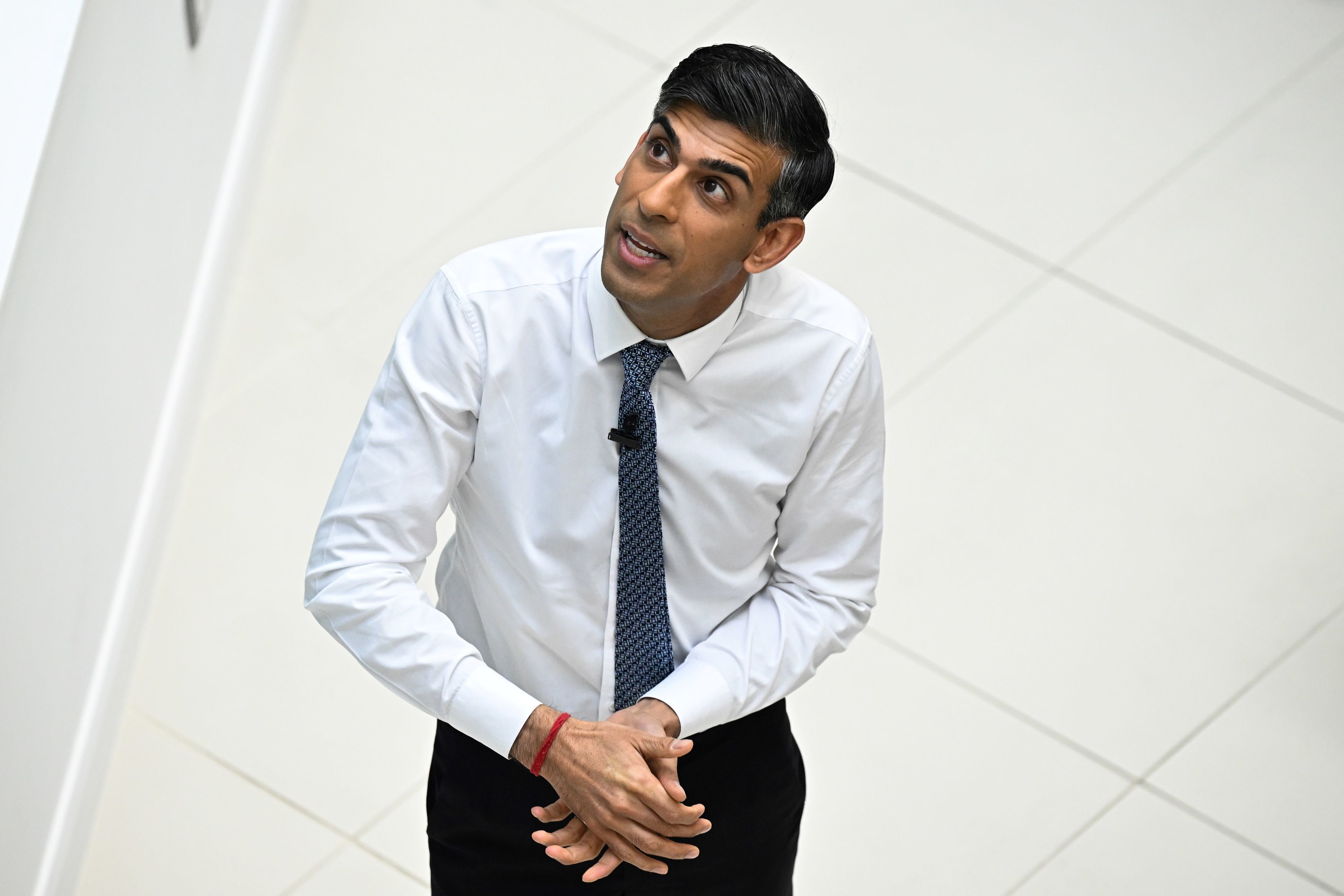Shawcross, Sharp, Johnson and Zahawi: The cosy world of ‘Rishi’s mates’
Sunak knows the rules on conflicts of interest say that the ‘appearance’ of any conflict must also be avoided, writes Andrew Grice


One danger when any political party is in power for a long period is the growth of an establishment that not only provides the elite but also those responsible for ensuring it sticks to the rules.
The risk was highlighted today when William Shawcross, the public appointments commissioner, recused himself from the inquiry into the appointment of Richard Sharp as chair of the BBC shortly after acting as a go-between when Boris Johnson secured an £800,000 loan facility while prime minister.
Shawcross said he was standing aside because “I have met Mr Sharp on previous occasions.” But Rishi Sunak’s original decision to ask Shawcross to investigate raised eyebrows in Whitehall because his daughter Eleanor, is head of the Downing Street policy unit.
The impression of a cosy club is reinforced by the fact that Sharp, a friend of Johnson and his choice for the BBC job, was also dubbed “Rishi’s mate” in Whitehall because Sunak worked for him at Goldman Sachs and Sharp later advised him at the Treasury.
Although some such connections are inevitable, Sunak knows the rules on conflicts of interest say that the “appearance” of any conflict must also be avoided. The Sharp and Nadhim Zahawi affairs have reopened the debate about whether the current rules designed to prevent them are strong enough.
Although George Osborne, the former chancellor, has predicted Sunak will now try to define himself as “the sleaze-buster”, the PM’s allies insist that Zahawi’s sacking shows that the system is working as long as ministers are transparent. But that’s far too complacent; Zahawi was anything but transparent and there’s no guarantee all ministers will be in future.
Sunak deserves credit for at least appointing an adviser on ministerial interests – Laurie Magnus, who found that Zahawi breached the ministerial code on at least seven occasions. The post had remained vacant after two advisers quit in exasperation at Johnson’s lax attitude to standards and Liz Truss declined to fill it.
But Sunak should now go further by putting the ministerial code and the adviser on a statutory footing to give them more clout. Crucially, the adviser should have the power to start investigations into ministers’ conduct (rather than require the PM’s approval as at present).
HMRC should inform the cabinet secretary if there are any current investigations into ministers’ tax affairs before their appointment is confirmed. A red, amber or green light is given before honours are awarded. This is probably why Zahawi was denied a knighthood, so it is bizarre there was no automatic “health check” before he became chancellor, heading a Treasury with ultimate responsibility for HMRC while it was investigating him.
There should be tougher rules to prevent ministers issuing legal threats like the ones Zahawi made to The Independent and the tax expert Dan Neidle last summer. Under the code, ministers must consult the attorney general before taking legal action but threatening action is a grey area. This change would make it harder for ministers to gag the media.
A further safeguard against a political elite that protects its own would be giving civil servants a legal duty to uphold the public interest as well as serve the government of the day. A duty to raise issues with the cabinet secretary or ministerial adviser might have ensured Johnson, Truss and Sunak were told about the HMRC investigation into Zahawi before appointing him.
Sunak does not need to set up an inquiry to find out how the rules should be changed. The work has already been done by the committee on standards on public life, whose report has been gathering dust on the No 10 shelf since 2021. It found that the standards framework is “too dependent on conventions” and that regulators, including the post now occupied by Shawcross, “are not sufficiently independent”. On public appointments, it called for a better guarantee of the independence of assessment panels. (The BBC chair panel was apparently not told about Sharp’s help with Johnson’s finances).
The committee said the rules on business appointments for former ministers, advisers and civil servants should be tightened because “the lack of any meaningful sanctions for a breach of the rules is no longer sustainable”.
It concluded that “government needs to take a more formal and professional approach to its own ethics obligations”. This should be music to Sunak’s ears, since he promised “integrity, professionalism and accountability at every level” on becoming PM in a deliberate break with the Johnson era.
Speaking in County Durham today, Sunak promised to take “whatever steps are necessary to restore the integrity back into politics”. He now has a golden opportunity to prove it by reforming the system. If he did so, voters would be more likely to trust him to deliver the five policy pledges on the economy, NHS and small boats on which he has staked his premiership.





Join our commenting forum
Join thought-provoking conversations, follow other Independent readers and see their replies
Comments